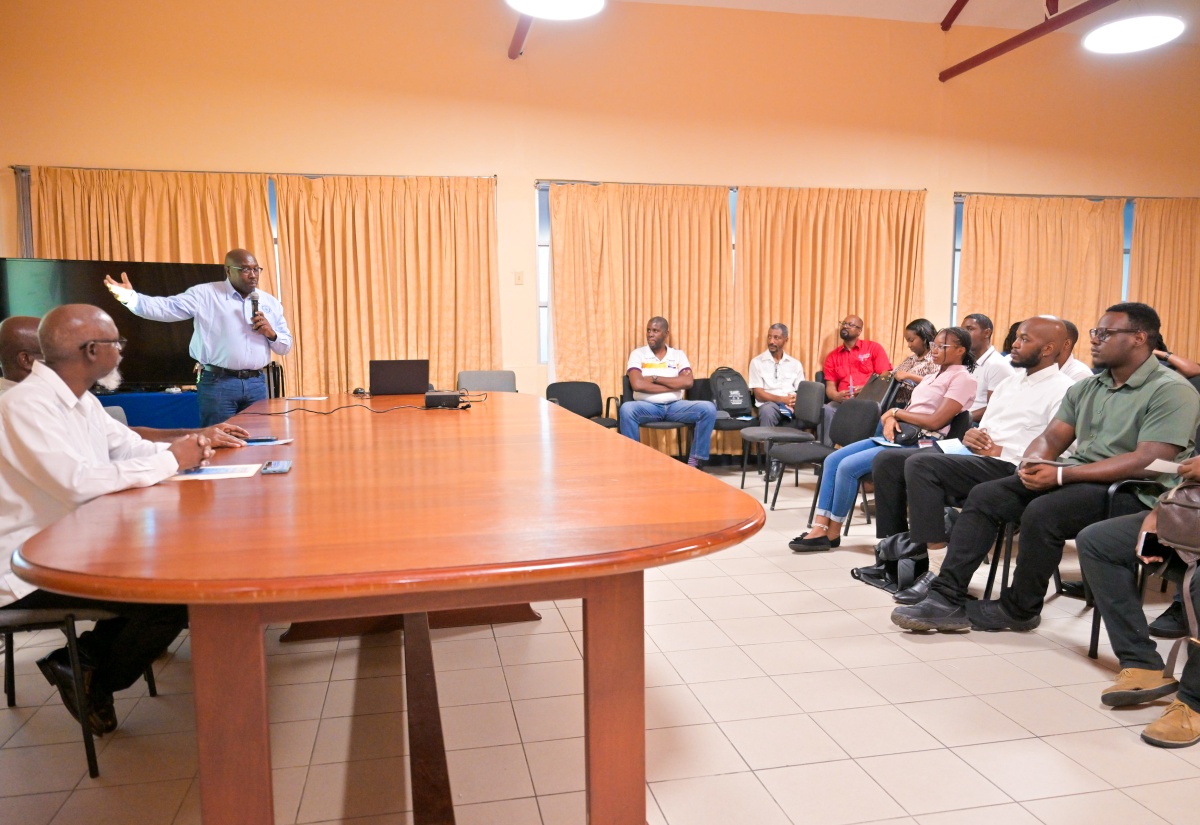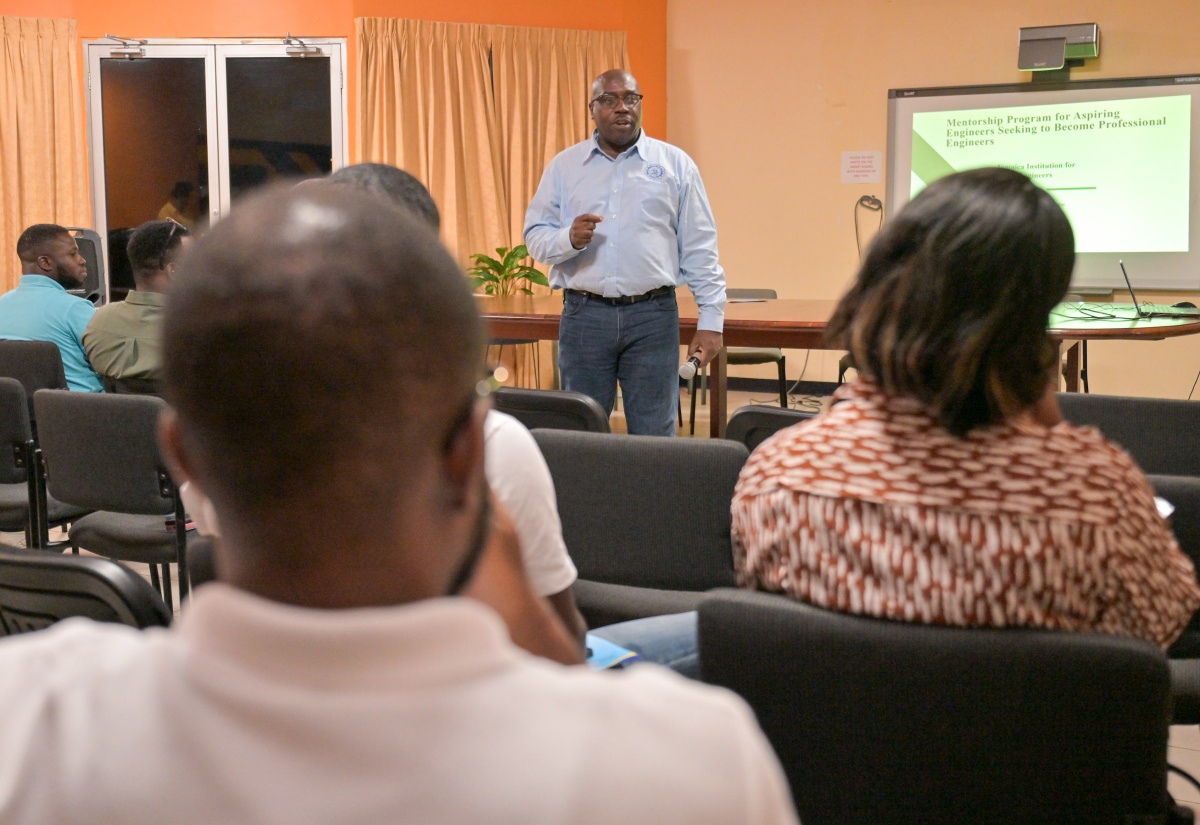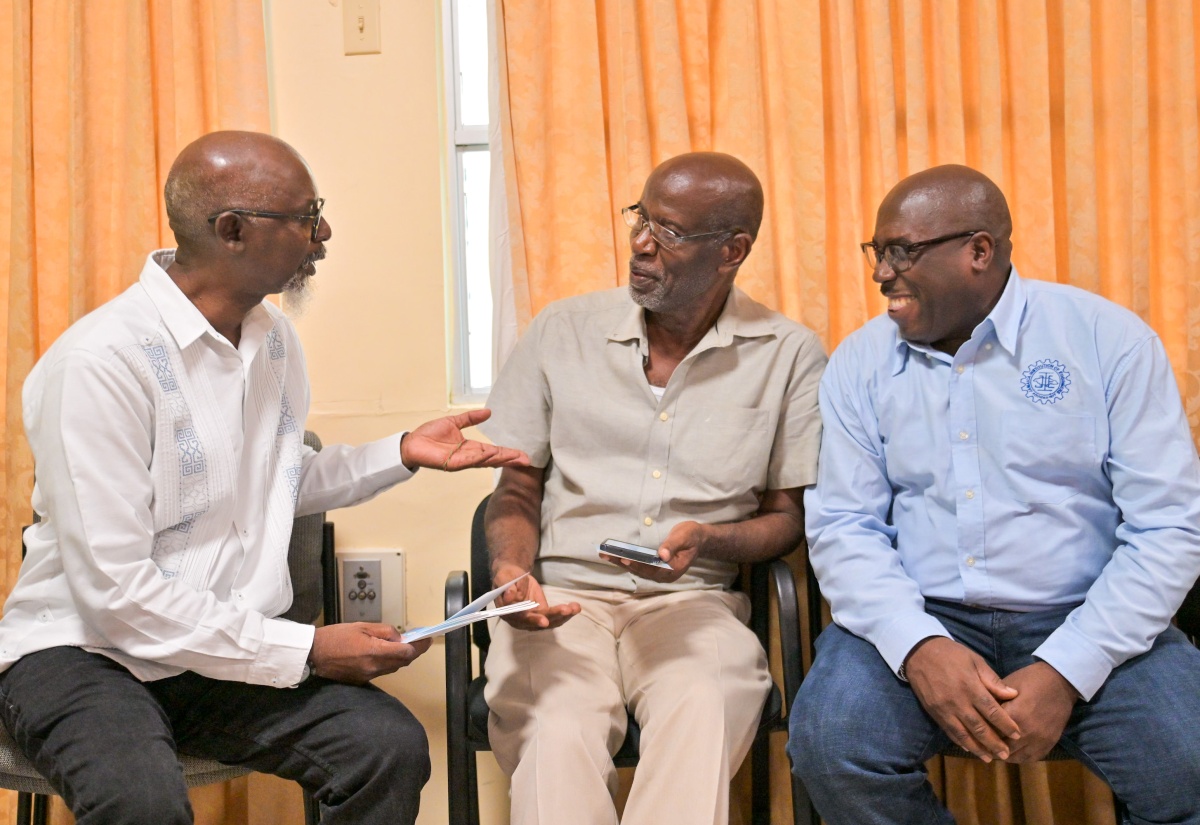Jamaica Institution of Engineers Launches Mentorship Programme
By: , August 23, 2025The Full Story
The Jamaica Institution of Engineers (JIE) has embarked on a mentorship programme designed to support young professionals in establishing their careers, while also engaging other key stakeholders.
The pilot was officially launched on Friday (August 22) at the University of Technology (UTech) Jamaica in Kingston.
The programme, being implemented in partnership with the Professional Engineers Registration Board (PERB), targets aspiring engineers, professional engineers, alumni, and industry partners. Currently, 35 mentors and 15 mentees are actively participating.
President, Colin Porter, said the mentorship programme forms part of the JIE’s mandate to promote and encourage the advancement, practice, and science of the engineering profession.
“This initiative is a significant step in our ongoing mission to strengthen the profession and to ensure that our engineers, especially those at the start of their careers, are guided, supported and inspired, as they move towards becoming professional registered engineers in Jamaica,” he stated.
“It is a vehicle to strengthen the quality of applicants for professional registration but, ultimately, for the assurance that the practice of engineering will be at the highest standard,” Mr. Porter added.
The 12-month pilot will include monthly mentor–mentee meetings, workshops, seminars, and networking events. Mentor–mentee matching will be guided by professional discipline, career goals, and personal preferences.
Matching criteria for mentors and mentees will be based on experience level, geographic location, and availability.
The first month will feature an orientation and initial mentor–mentee meeting, followed by regular meetings, workshops, and networking events over the subsequent 11 months. A mid-programme review will be conducted in month six, with a final review and closing ceremony scheduled at the end of the 12-month period.
The programme’s communication protocols include confidentiality agreements and documentation, issue resolution procedures, and structured feedback mechanisms.
In addition, participants will receive a mentorship handbook outlining best practices and guidelines, access to online resources—including articles, videos, and templates—and ongoing support from programme coordinators.
Monitoring and evaluation tools will be used to measure key performance indicators (KPIs), including participation rates, satisfaction levels, and goal achievement.
Feedback collection will be conducted using multiple methodologies, including focus groups, one-on-one interviews, survey reporting, and data analysis.
Findings will inform programme adjustments and recommendations in preparation for the full-scale launch.




